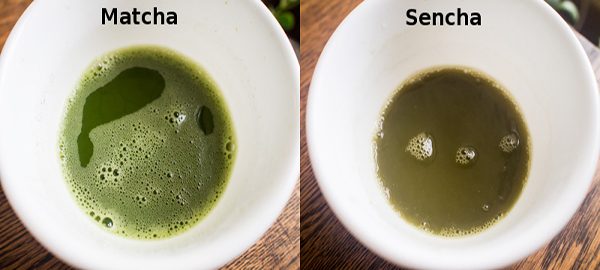Multiculturalism in the US to Fuel Interest in New Tea Varieties

Photo courtesy of Matcha Reviews
As consumers in the United States seek new experiences and discoveries, including finding new and differentiated flavours, formats and occasions, growing numbers are willing to try beverages from around the world. A new report from Packaged Facts finds that although a slowdown in immigration might reduce the speed with which this trend takes place, “the US will remain a nation of immigrants and a fertile ground for cross-cultural beverage developments.”
The beverage segment most on trend for “multicultural inspiration” is tea, according to the Rockville, Maryland-based market research firm’s US Beverage Market Outlook 2018, which was released earlier this month. “Teas are a beverage category in which the appeal of foreign ingredients plays a role,” says David Sprinkle, research director for Packaged Facts.
Sprinkle explains that US tea consumers are currently enjoying the many varieties of tea such as matcha, moringa and sencha, which have long been staples of Japanese and other Asian cultures. “In the US, these are marketed as individual types and used as components in tea beverages that have additionally flavoured with fruits and spices. Each of these teas also are favoured for their widely recognized health benefits, which is attractive to today’s consumers who are trending away from surgery soft drinks and juices,” he says.
In the State of the US Tea Industry 2017-18 report, Peter F Goggi, president of the New York-based Tea Association of the USA, writes, “Consumer interest sparked by tea’s healthfulness, variety, availability and sustainability, will hold steady, if not grow throughout 2018.”
Given these trends, Packaged Facts has outlined three international teas and a processing method to watch in the coming years that will likely drive growth in the US tea market from USD $8 billion in 2017 to $10 billion by 2022:
- Matcha Tea – matcha is a highly nutritional form of green tea with high concentrations of potassium, magnesium, vitamins A and C, and fiber as well as high levels of L-theanine, an amino acid that is said to have a calming effect on consumers, despite having substantial amounts of caffeine. L-theanine offers health benefits in terms of strengthening the immune system as well as providing an energy boost. While matcha has been available in the US for a number of years in select markets, it has now entered the mainstream market. Evidencing this, Unilever introduced its first home-brewed matcha teas to its Pure Leaf line of hot and iced tea products in 2017.
- Moringa Tea – with origins rooted in India, moringa is a tea made from the leaves of the moringa oleifera tree that is rich in antioxidants. Benefits attributed to moringa include increased energy and rapid recovery after exercise, mental and emotional balance, and healthy blood sugar levels. Ready-to-drink (RTD) moringa teas are limited, but there are many companies offering moringa teas for brewing. Packaged Facts notes that one of these companies is Terrasoul Superfoods, which has a goal of making nutrient-dense foods more affordable and accessible to consumers.
- Sencha Tea – sencha is a variety of green tea that is still relatively new to the US market (according to Packaged Facts, it is considered the most popular tea in Japan where it originates). Sencha, reported to contain more antioxidants than matcha, is available in leaf and powder form, as loose tea and in tea bags. Currently, most of the brands sold in the US are imports from Japan, but there are US companies offering sencha, as well.
- Mizudashi (Cold Pressed Tea Process) – the US is an iced tea-drinking nation and the cold-brewing process – which has found immense success with coffee – has begun spreading to the tea category. As with coffee, the cold-brewing process results in a smoother and less bitter beverage. Furthermore, cold brewing is said to better preserve the health benefits of the tea than preparing it through a hot-brewing method. In March 2017, ITO EN North America, the US division of the Tokyo, Japan-based company, launched a lineup of ice-steeped, cold brew RTD teas in the US. The beverages leverage authentic Japanese cold brew processes, ice-steeping the tea to bring out the smooth, naturally mellow sweetness of green and black teas. They are available in retailers such as Whole Foods Market, Sprouts Farmers Market, Wegmans, and online at Amazon.com.
Companies looking to enter or raise their profile within the competitive and crowded US tea market, might want to explore opportunities within one of these key areas.



